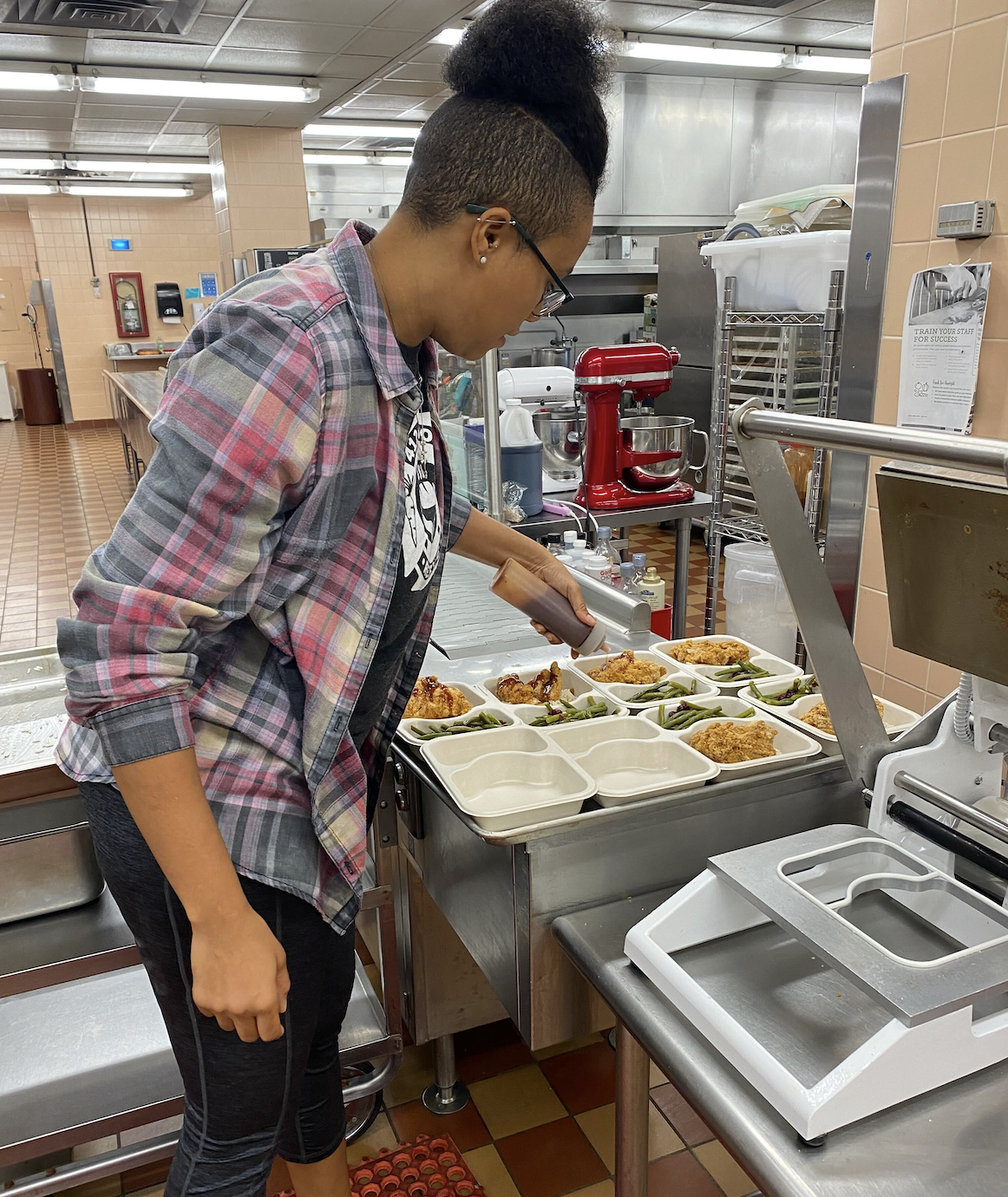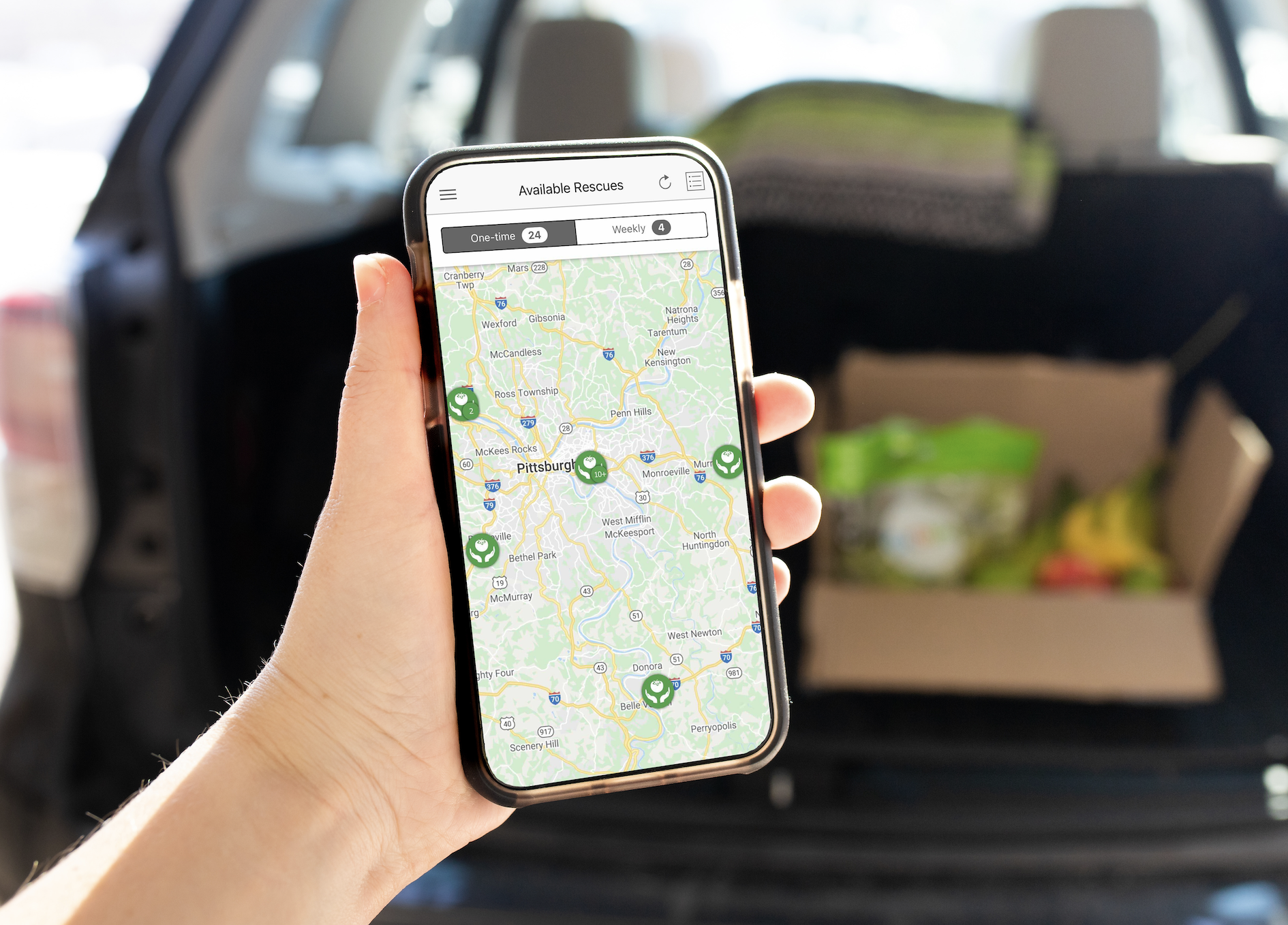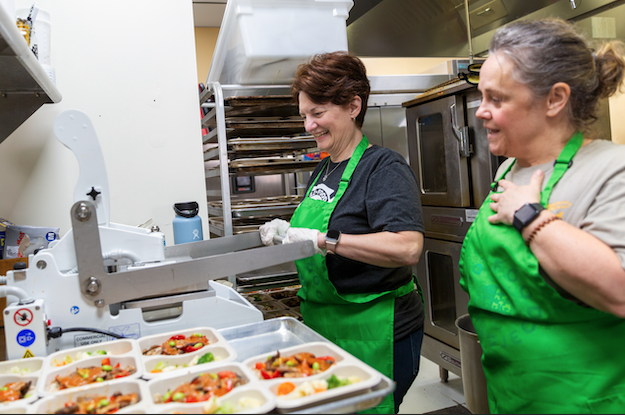412 Food Rescue's Next Chapter: New Leadership, Fresh Programs and a Vision for National Impact
By Sheena Carroll, Pittsburgh Technology Council
 As 412 Food Rescue approaches 10 years of service to the Pittsburgh region, the organization is gearing up for a new and exciting chapter. With the departure of founder Leah Lizarondo and the appointment of Alyssa Cholodofsky as the new CEO, 412 Food Rescue is undergoing significant changes, including fresh faces, new programs and a revamping of existing initiatives.
As 412 Food Rescue approaches 10 years of service to the Pittsburgh region, the organization is gearing up for a new and exciting chapter. With the departure of founder Leah Lizarondo and the appointment of Alyssa Cholodofsky as the new CEO, 412 Food Rescue is undergoing significant changes, including fresh faces, new programs and a revamping of existing initiatives.
Founded in 2015, 412 Food Rescue’s mission is to prevent perfectly good, but unsellable food from entering the waste stream by redistributing it to people experiencing food insecurity. Central to their operations is their Food Rescue Hero app, developed to connect food donor partners such as caterers, grocery stores, and wholesalers with nonprofit organizations and individuals in need. Over the years, the app has evolved into a powerful tool that is now licensed by organizations in 18 locations across North America.
“Food Rescue Hero has helped us to rescue millions of pounds of food and has provided a foundation that other food rescue organizations across North America can adopt to have an immediate, scalable impact on food insecurity and environmental sustainability in their local communities,” said Brad Fetchin, VP of Product.
Fetchin stated that the organization revamped its platform last year to enhance the user experience and streamline the food rescue process. By incorporating customer feedback into their product development pipeline, the organization aims to improve scalability and efficiency in their operations.
In October, 412 Food Rescue will host the 3rd Annual Food Rescue Conference in Pittsburgh. Initially a networking and educational event exclusive to organizations using Food Rescue Hero, the conference is now a global event livestreamed for all food recovery stakeholders. The conference provides an opportunity for thought leaders in nutrition security and Food Rescue Hero users to develop best practices and share advice.
“Food Rescue Hero has helped us to rescue millions of pounds of food and has provided a foundation that other food rescue organizations across North America can adopt to have an immediate, scalable impact on food insecurity and environmental sustainability in their local communities,” said Brad Fetchin, VP of Product.
“We build these knowledge bases so that we can have synergistic communication – we provide the tech, and they provide the feedback,” explained Jen England, VP of External Affairs.
412 Food Rescue also runs the Food Rescue University, which offers virtual info sessions and webinars about launching and growing other food rescue organizations.
 The Food Rescue Hero technology isn’t the only way that 412 Food Rescue fulfills its mission against food insecurity. The Grocery Bagging Program, launched in partnership with the Housing Authority of the City of Pittsburgh in 2021, repackages bulk food donations into individual servings. The program distributes over 500 grocery bags weekly through HACP locations.
The Food Rescue Hero technology isn’t the only way that 412 Food Rescue fulfills its mission against food insecurity. The Grocery Bagging Program, launched in partnership with the Housing Authority of the City of Pittsburgh in 2021, repackages bulk food donations into individual servings. The program distributes over 500 grocery bags weekly through HACP locations.
Another initiative is the Good Food Project. Housed in the Millvale Food + Energy Hub, the project transforms bulk food donations into grocery bags and ready-to-eat meals, bolstering food access in the community.
Diane Walter, Director of Marketing, expressed enthusiasm for the Good Food Project, noting its positive impact on both the community and corporate teams.
“The Good Food Project is great for corporate volunteer groups because it allows for team-building experience – and it’s fun!” Walter said.
Corporations can also engage with 412 Food Rescue through conducting app takeovers, which involves workers going out into the community and collecting rescues.
Returning this summer is their recently revamped CSA. Formerly known as the UglyCSA, FarmShare allows subscribers to receive a weekly bag of local produce during the peak growing season. FarmShare also offers the opportunity to sponsor a share for a family in need, encouraging businesses to directly contribute to the fight against hunger.
 England emphasized the critical role of food rescue technology in addressing real-world challenges, stressing the importance of scaling operations efficiently. As the organization aims to expand its reach beyond Pittsburgh, the significance of food rescue in mitigating climate change and ensuring access to fresh food for all communities cannot be overstated.
England emphasized the critical role of food rescue technology in addressing real-world challenges, stressing the importance of scaling operations efficiently. As the organization aims to expand its reach beyond Pittsburgh, the significance of food rescue in mitigating climate change and ensuring access to fresh food for all communities cannot be overstated.
“Food in landfills is a primary producer of greenhouse gases, more so than air travel,” said England. “Redistributing food makes an almost immediate effect on climate change.”
England’s goal, and the goal of 412 Food Rescue at large, is that every place will one day engage in food rescue.
“Food rescue is revolutionary! It’s transformative,” she said. “Providing access to fresh food breaks down barriers in every metro area in the country.”